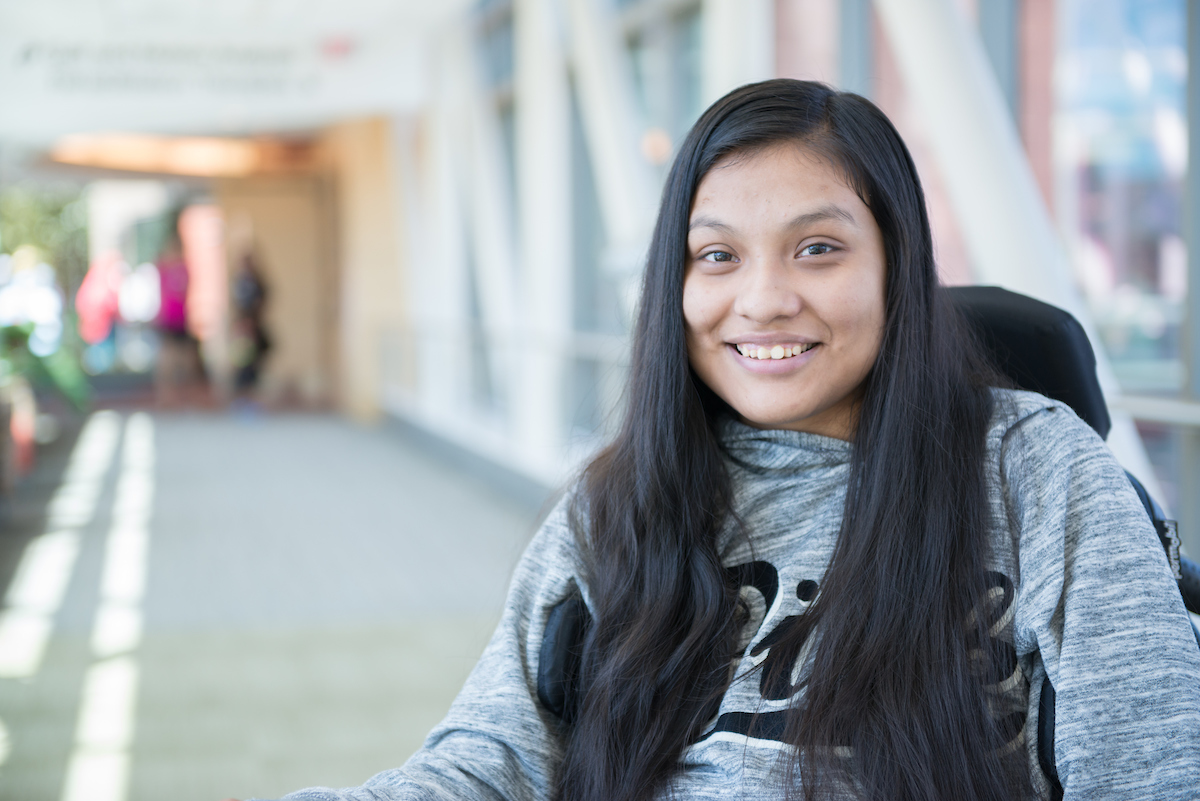As children who have brain, bone, and movement conditions grow older, they need medical care appropriate for their age and complex conditions. Many of these conditions lead to age-related effects that can be managed—or even prevented—with proper care and treatment.
Whether you’re a teen or adult, you can trust Gillette Children's expertise in treating the age-related effects of cerebral palsy, spina bifida, neuromuscular conditions, and other brain, bone, and movement conditions that began during childhood and require lifelong specialty care.
What is the age range for Gillette Adult Services?
For current Gillette patients:
Gillette Children's care is specialized, and many of our pediatric patients have multiple providers. Ideally, the process of discussing transition to adult services for current patients begins during adolescence, between the ages of 12 and 14. This allows time for a proactive, gradual, and planned transition of providers and services. If you are a teen currently seen at Gillette, your pediatric provider will work with you to determine what care can transfer to Gillette Adult Services and what care must transfer to another adult care system.
As you begin Gillette adult services, you will maintain your medical records system with Gillette Children’s. This shared system allows our providers to access all the information needed to continue caring for you or your child during the transition to adult healthcare. Since some of our pediatric specialists also have training in adult care, you might see some of your childhood providers at Gillette's adult clinic.
Take a look at common milestones on the journey from pediatric to adult healthcare and visit our Healthcare Transition Services page for more information and resources.
For all Adult Services patients:
Our facilities are thoughtfully designed to support adults who qualify for our medical services. Spacious hallways, exam rooms, and treatment areas ensure comfortable access for adult wheelchair users. We also provide specialized support for lifting, transferring, weighing, and caring for adults with diverse cognitive and physical needs.
Gillette offers access to surgical services and an inpatient unit on our St. Paul Campus for adults; however, there are some firm age rules for these services:
- The Operating Room can conduct surgical procedures until a person's 41st birthday.
- The Inpatient Adult Unit can admit up to a certain age, depending on the reason for admission.
- An individual can be admitted following a surgical procedure until their 41st birthday
- An individual can be admitted for certain medical conditions, depending on the care required, until their 26th birthday
Which conditions are treated at Gillette's Adult Services Clinic?
We specialize in services for people who have childhood-onset brain, bone, and movement conditions. Gillette Adult Services does not treat conditions that develop during adulthood, such as diabetes, heart conditions, or cancer. Additionally, it’s important that you or your adult child have a primary care provider and clinic, as our specialists don’t offer primary care.
We offer care for teens and adults who have the following conditions:
- Cerebral palsy
- Neuromuscular conditions, including but not limited to:
- Becker muscular dystrophy
- Duchenne muscular dystrophy
- Charcot-Marie-Tooth disease
- Spinal muscular atrophy and similar genetically determined conditions
- Spina bifida
- Spinal cord injury
- Complex movement disorders (associated with a condition that began in childhood)
- Post-polio symptoms and effects
- Rett syndrome and similar genetic conditions
- Traumatic brain injury
- Other childhood-onset conditions requiring the care provided by Gillette Adult Services
Which specialty services does Gillette provide for adults?
Gillette's adult services clinic offers specialty appointments to adults with childhood-onset brain, bone, and movement conditions. Outpatient Adult Services are typically provided at our Phalen location, while Inpatient Adult Services are offered only at Gillette Children's main campus. These specialty services include:
- Complex Movement Disorder Clinic
- Neuromuscular Coordinated Clinic
- Neuropsychology
- Neurosurgery
- Orthotics, Prosthetics, and Seating (OPS)
- Psychology
- Rehabilitation Medicine (PMR)
- Rehabilitation Therapies (Physical Therapy, Occupational Therapy, Speech Therapy)
- Rett Syndrome Clinic
- Social Work
- Spina Bifida Coordinated Clinic
- Therapeutic Recreation
- Urology
 Home Page
Home Page

